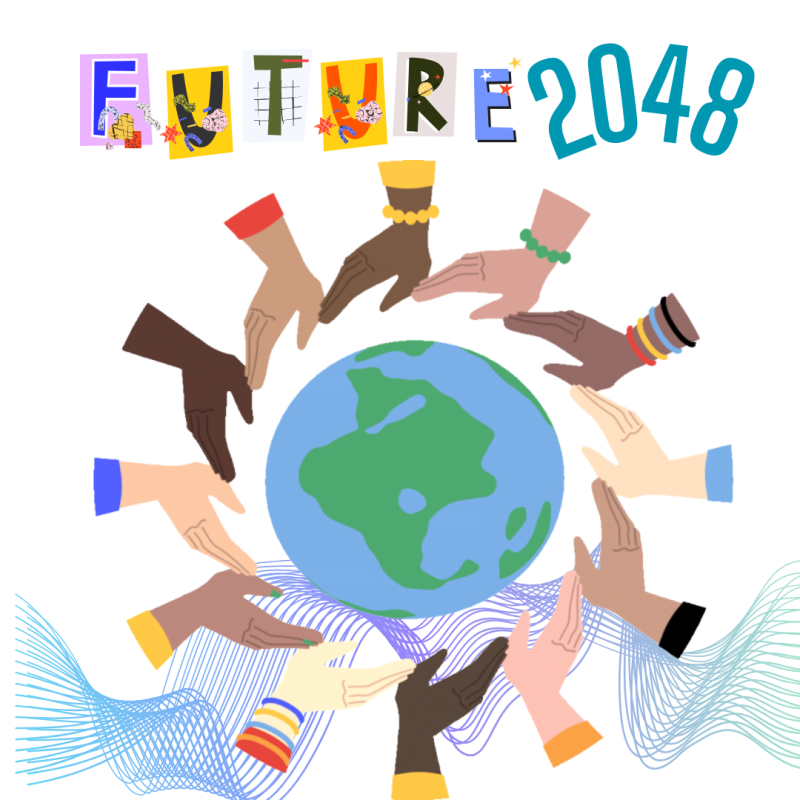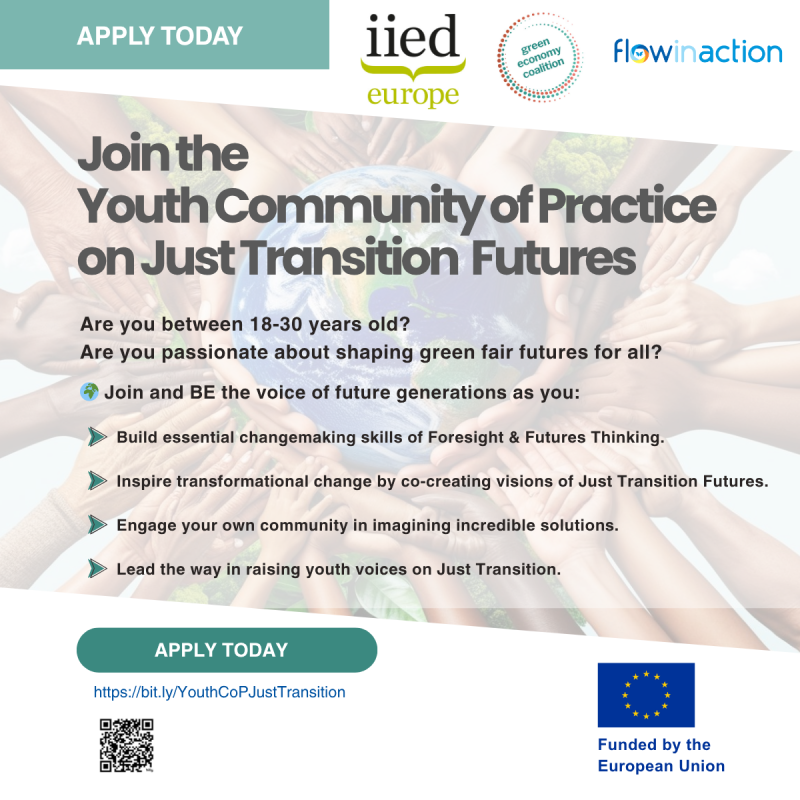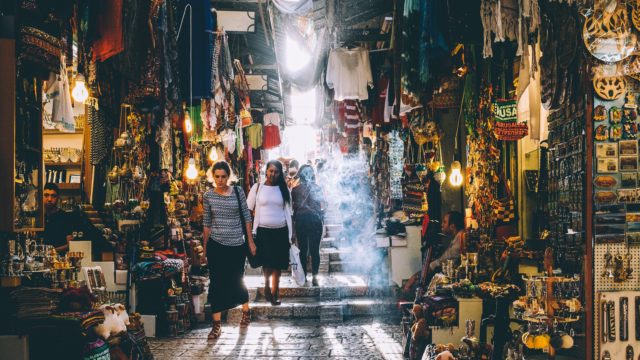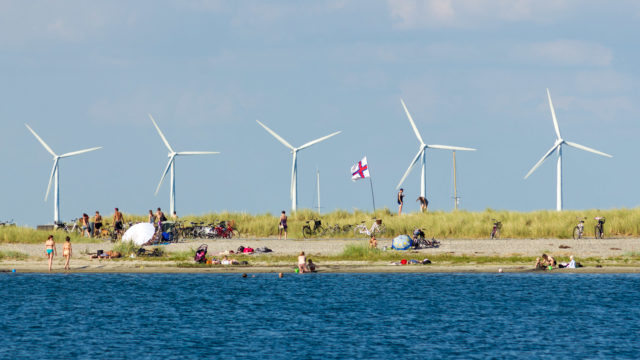Co-creating a better future: Youth Community of Practice (CoP) on Just Transitions
Empowering young people to explore futures thinking tools, so that they can confidently take action and advocate today for real change.

May 2025, saw the launch of the Youth Community of Practice (CoP) on Just Transition Futures: a joint initiative from IIED Europe and Green Economy Coalition, funded by the European Union, with learning journey content written and facilitated by Elaine France, Founder of Flow In Action.
The purpose of the Youth CoP is to empower young people to explore Just Transition Futures, using futures thinking tools, so that they can confidently take action and advocate today for transformational change.
Following the initial call for participants in April 2025, an inspiring core group of 27 Founding Members aged between 18-30 years signed up, with representation from Africa, Asia, Latin America and Europe. “Interestingly, which I’ve never had before in a community group, it is two thirds young women and one third young men,” says Elaine France. “Collectively, regardless of gender, they are all passionate about Just Transition, with incredible, fresh ideas.”
“ The important thing is to find hope in the imagining and bring new narratives to the table.”
From May – September, the founding members are being guided on an experiential learning journey to envision their Just Transition Futures. Subsequently, with a toolkit created through the process, the members will do outreach into their communities to inspire conversations and action on Just Transition between October – November, before continuing to grow the CoP worldwide.
In conversation with Elaine, we explored the approach for the Youth CoP a little further.
Q. Why use Futures Thinking?
“In Foresight and Futures Thinking, we say that the future is not predictable: there are many alternative futures depending on our actions in the present. By imagining and exploring these possible futures, we are able to challenge assumptions, discover blind-spots and expose old narratives keeping us stuck. When we do that, we are able to make different choices and take decisions in the present that guide us to where we want to go. It means that there is always hope, always the opportunity to make change happen.”
With that in mind, the intention of the Youth CoP is to build or enhance each member’s futures literacy, to reconnect them to their imagination and strategic thinking as the way to cultivate the conditions for innovation. It enables each person to bring new perspectives and ‘be’ the voice of future generations, as outlined in the UN Pact for the Future.
Q. Is there a particular method being used to support the learning journey?
“Yes, we’re using Causal Layered Analysis as the core methodology, which was developed by Sohail Inayatullah and further so by Ivana Milojevic. It is a really powerful approach for challenging status quo narratives and creating new narratives and beliefs at many levels. It which enables us to map a present-day issue by looking at its headlines, the system that facilitates it, the culture it creates and the deep story that perpetuate it. Doing so enables us to see the conflicts, as well as the potential for change. From this foundational exploration, we can then imagine preferred, transformational futures, as well as explore business-as-usual, catastrophic and outlier futures. It is from this structured exploration that we can co-create a shared vision.”

There are several members of the Youth CoP who are experienced in futures thinking and they are drawing on and sharing their expertise to deepen the experiences for everyone in the group. Additionally, members will be hosting short insight sessions online about their particular areas of expertise, with each other and a broader audience.
Q. There are some fundamentals that open each session, tell us about those.
“In futures, we always ask “Who is not in the room, or in the room but does not feel represented?” which brings our attention to decolonizing our thinking and encourages us to be non-extractive in our imagining and exploring. We also consciously invite in Nature as a stakeholder, to practice our awareness of being aligned with regenerative practices and co-creating a new eco-social contract with Nature and as part of Nature.”
Q. What insights can you share from the sessions so far?
“In the Welcome Session, we explored what the members wanted Just Transition Futures in 2048 to smell like. The beauty of futures-thinking is to create this embodiment through the senses. A number of members said, “Petrichor” which is the scent when rain falls on the earth. It was such a beautiful moment of connection, as we were all grounded in this lived memory that entangled past, present and future: and the realization of the scent being different in each geographical location, which brought these threads of biocultural heritage from the future into our consciousness of how we might the pathway to that from our present.
In Session 1, we explored definitions of Just Transition to overcome assumptions and become conscious of what it meant to the members of the CoP. There was strong agreement about it tackling the roots of inequality and addressing them, being empathetic and drawing on ancestral wisdoms to get back to the heart of what a good ‘being-centred’ life looks like for all. In Session 2, we started to connect to the problem that each member is ‘in-love’ with resolving to unfold Just Transition Futures: from ending political corruption, to restoring soil quality, to ending youth unemployment and so many more. The reason why we connect to the problem, is so that we are always validating that we’re solving it, conscious of our impacts and consequences as we step into futures.”
Q. What key things can we be doing too, inspired by the Youth CoP journey?
“Great question. For sure, go into every meeting, workshop and event and do these three things to become more futures-conscious and open up everyone’s problem-solving creativity.
- Ask who is not in the room to create awareness of missing voices.
- Invite in Nature as a vocal stakeholder.
- Ask people want they want Just Transition Futures in 2048 to smell like and sound like.
The important thing is to find hope in the imagining and bring new narratives to the table.”
- Elaine France, Flow in Action


